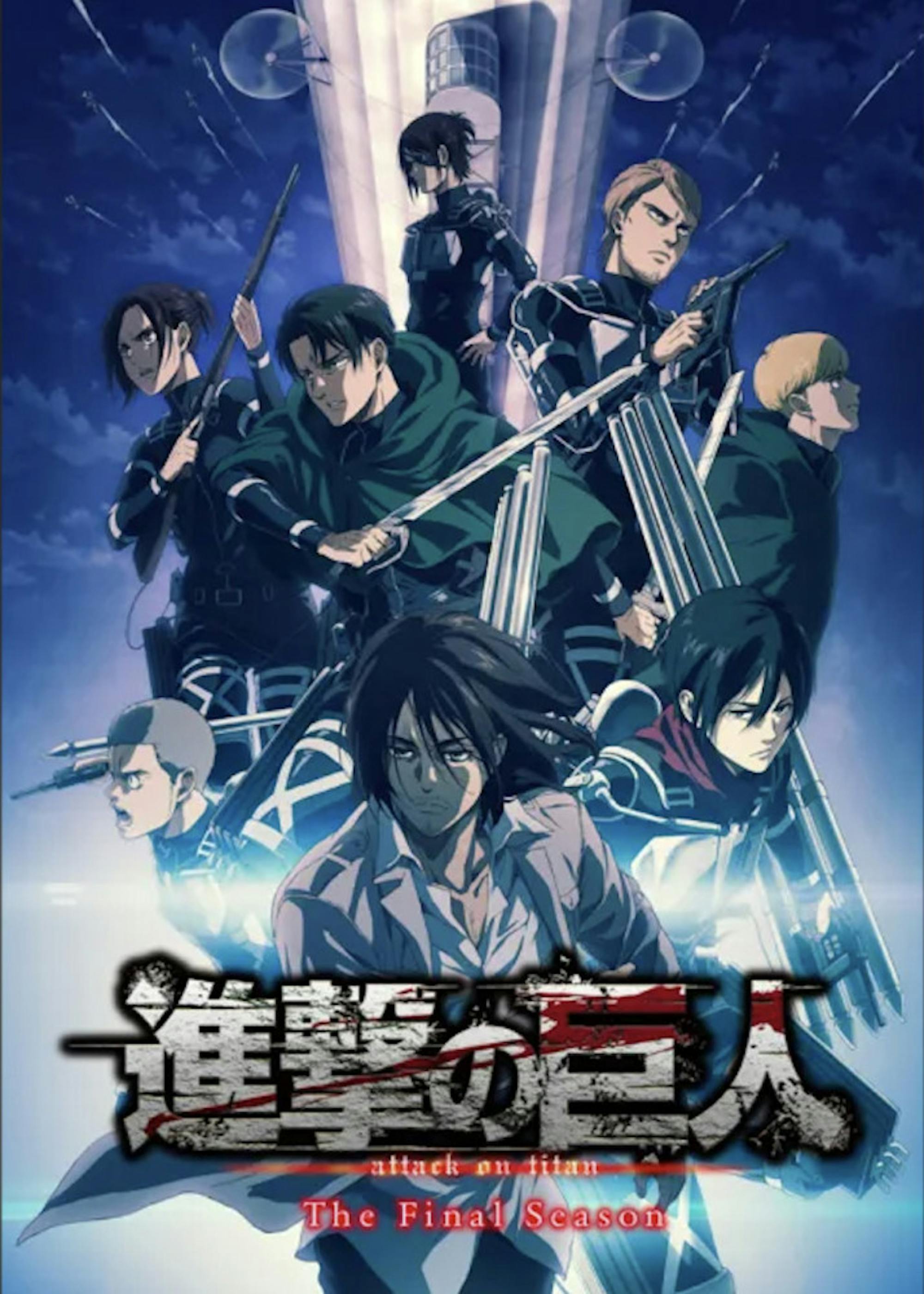Eight years ago, Hajime Isayama’s “Attack on Titan” (2009–21) finally received an anime adaptation and reached global stardom. For many, it was an introduction to anime as a narrative medium, as it welcomed viewers into its seemingly simple world and premise. Yet by the end of the first season, it became apparent that there was much more in store than merely creating another generic story of humans versus monsters.
Now, after three full seasons, multiple delays and a four-year hiatus between the first and second seasons, "Attack on Titan" has finally reached the first half of its conclusion. Though its plot may be familiar to those who read the original manga, the show masterfully captures Isayama's ability to write a compelling, multifaceted story within an even more captivating world.
For the past eight years, "Attack on Titan" has told a relatively straightforward narrative: A seemingly righteous group of Eldians on Paradis Islandfight against giant man-eating titans and their evil Marleyan conspirators who seek to extinguish humanity.
Yet, in Season 4, the show shifts its focus in order to display the true scale of this world. In its premiere, “The Other Side of the Sea,” we are introduced to a new “enemy” group of child Marleyan warrior recruits instead of the usual protagonists, Eren (Yuki Kaji), Mikasa (Yui Ishikawa) and Armin (Marina Inoue). Though this shift may initially be sudden and unappealing, as the episodes progress, viewers find themselves connecting with these new characters and their unfortunate circumstances as the show consistently draws parallels between the Marleyan warriors and their Paradis counterparts.
After four seasons, the adept storytelling and characterization finally come to a climax in Episode 5, “Declaration of War.” It is here that "Attack on Titan" reveals its true enemy: the effects of systematic bigotry and its infinite cycle of violence, pain and hatred. Within five episodes, the show introduces viewers to the morally ambiguous nature of war. Though the series focuses on the inhabitants of Paradis Island, any fan of the show can make a compelling argument justifying the Marleyans’ actions.
“Attack on Titan” brutally yet realistically shows the effects of institutionalized hatred on a nation’s conscience and global perspective. While Marleyan characters like Gabi (Ayane Sakura) at first seem detestable, her parallels with Eren soon become obvious as both are blinded by their undying, violent hate for those who they see as their oppressors. Characters like Falco (Natsuki Hanae), who shows mercy to a wounded Eldian soldier despite his own Marleyan heritage, are met with racially charged insults. Even our previous Eldian protagonists find themselves divided over the morality of their actions.
Outside of the narrative elements, Season 4’s management shifted from WIT Studio to MAPPA, resulting in a change in the anime’s art style. Though it takes a couple of episodes to get used to the redesigned characters, MAPPA still manages to animate fluid, action-packed scenes at the same level as WIT Studio. However, due to limited production time, most scenes with titans arenow depicted using computer-generated imagery animation. While MAPPA’scomputer graphics animation greatly outdoes most anime currently using similar techniques, it still cannot match the exciting motions found in earlier seasons’ 2D titans. This leads to some underwhelming moments that fail to achieve their full animated potential.
In some episodes, like “A Sound Argument,” the pacing becomes inconsistent and borderline confusing for those who do not remember specific, briefly-mentioned details from prior seasons. These types of episodes are packed with expositional dialogue, rarely giving the viewer a chance to understand the implications of what was just said. Overall, these pacing issues are relatively infrequent yet still detract from the total comprehension of some important plot points.
Season 4 of “Attack on Titan” is by far the most unique season yet. Though the show’s ending has yet to be adapted to anime, the first part of Season 4 still gives viewers a lot to discuss before the end. Through every episode, even those which lack action scenes, the viewer is kept on the edge of their seat. No matter how often season four of “Attack on Titan” shifts away from previous expectations of the story’s development, it still remains as exciting, terrifying and thought provoking as ever.






